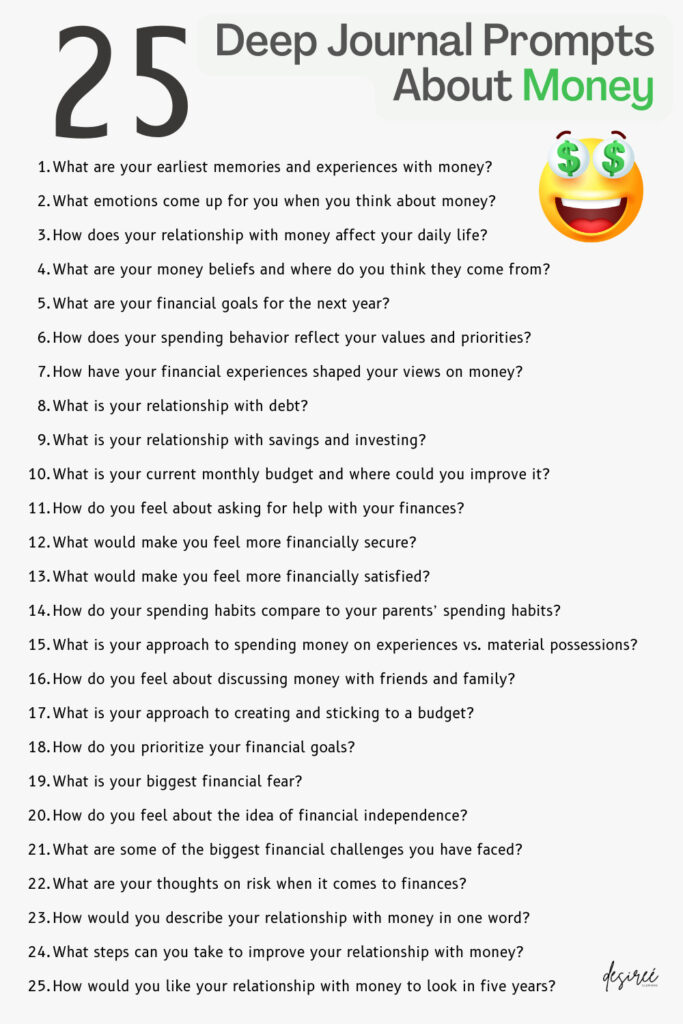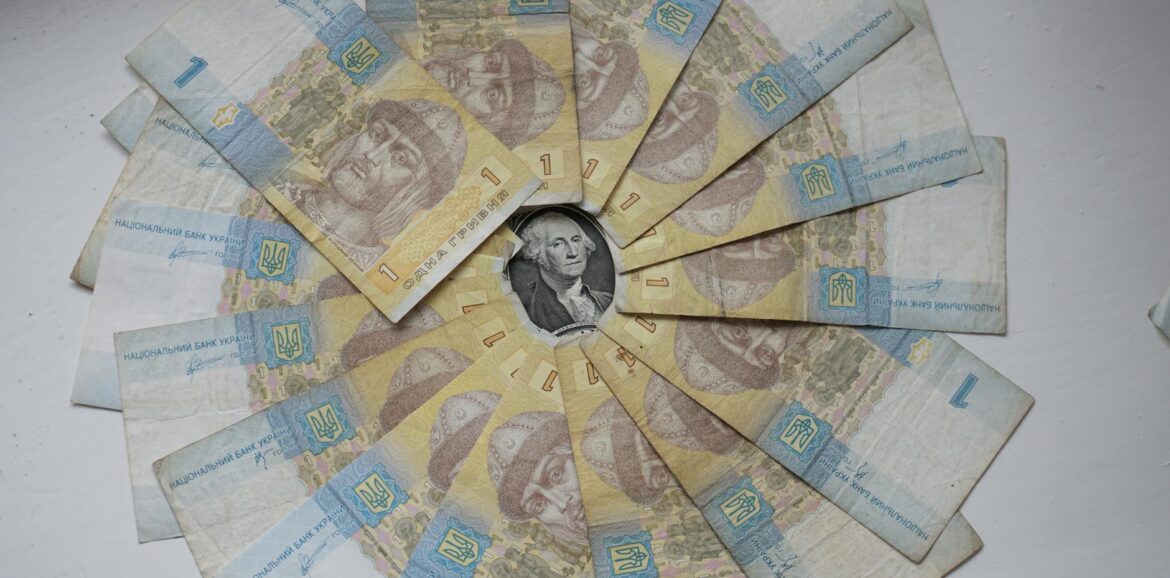Disclaimer: I am not a financial advisor and do not guarantee that you’ll increase your money flow. Take what works and leave what doesn’t. You are 100% responsible for the information you accept or reject.
The Money Game
The purpose of money is to simplify trade by providing a standardized measure of value.
How did it become the root of all power and control yet a necessity to survive in a modern world?
Money dictates our choices, fuels our desires, and shapes how we live our lives. It plays a significant role in our well-being, relationships, and overall satisfaction in life.
We relentlessly chase after it, always feeling like we have just enough to get by but never enough to feel secure. And while we work tirelessly to earn it, too often our labor feels fruitless, leaving us feeling unfulfilled.
Although it is true, that capitalists run the world and poverty is still an issue worldwide, there is still hope that lies in each individual through creating a better relationship with money.
If you’re ready to change your relationship with money, then let this article motivate you with practical solutions so that you can play the money game better.
Psychological & Emotional Conditioning of Money
The psychology of money explores our relationship with money as well as our behavior toward it.
According to this article from the Harvard Business Review, our psychology (mental) and emotions (feeling) are closely related to how we view and manage our money.
Most people believe that success with money depends on intelligence, education, luck, or some sort of mathematical ability that they don’t have. Although these are all possibilities for financial success, the reality is that your success with money is heavily dependent upon your behaviors, beliefs, and experiences interacting with it.
In order to improve your relationship with money, and to see better results in your life, your beliefs toward money need to be reevaluated.
How to Change Beliefs About Money
Are you ready to shake up your money beliefs and make it rain?
Mindset is everything when it comes to making improvements in our life and money is no exception.
Now, I know what you’re thinking and no this isn’t some Law of Attraction gimmick or some sort of brainwashing technique.
It’s an internal investigation and self-reflection on the unhealthy beliefs you hold about money.
If you hold unhealthy or negative beliefs, they will influence your actions, which will keep the negative belief active in your mind.
The goal is to reframe any unhealthy beliefs with a more accurate or positive belief so that your actions match those beliefs. Then you will see improvements in your personal finances.
Here are a few simple steps to help you change your money beliefs.
Identify Your Money Beliefs
The first step in changing your mindset about money is to identify your beliefs about it. Duh right!?
But don’t be fooled, this step can take some time and you may find yourself repeating it often.
Identifying beliefs requires deep internal reflection, a remembering of the past, and a level of awareness many people aren’t equipped with.
But if you’re here, then you’re probably strong enough to do it.
Here’s how:
Take time to contemplate and think about your experiences with money, what you’ve been taught about it, and how it makes you feel. Do you view money as a source of security, happiness, or stress? Write down your thoughts and feelings about money and see if you can identify any patterns or themes.
If you need more help with this save this image or pin it for future reference. 👇

Challenge Your Limiting Money Beliefs
Once you’ve identified your beliefs and values about money, it’s time to challenge any unhealthy or negative beliefs.
Here’s how you challenge them:
Ask yourself if your beliefs are serving you or holding you back. For example, if you believe that you can never have enough money, ask yourself if that’s true and identify any behaviors that reinforce this belief.
Now here comes the challenging part…. You have to mentally reframe a better belief and reinforce that belief with your behaviors.
It’s also important to note that your mind and body will show resistance to change. This is why it’s a challenge and many people fail.
*This is the part where I tell you to keep the motivation even when you don’t have it.
Have faith in yourself, and soon you’ll see results. Simply increasing your awareness of your relationship with money is a great first step.
Adopt A Growth Mindset
A growth mindset is all about embracing change, growth, and learning versus being stuck in a fixed mindset where you believe that your abilities and circumstances are set in stone.
A growth mindset allows you to see the opportunities that are already available to you.
Being open to change will increase your awareness of new possibilities, including better ways to reach your financial goals.
This means that you are open to learning new things and exploring different approaches to your deeply held beliefs.
Educate Yourself About Money
Some people have insatiable desires for large amounts of money and the power and will to stop at nothing to achieve it.
Their secret is that they achieve it through various methods of formal and self-education. They educate themselves through experience and are open to learning new skills and mindsets to help them reach their goals.
Education is a powerful tool for changing your mindset and behaviors around money.
You can start by learning the basics of budgeting, saving, and investing. Read books, articles, and blogs about personal finance, listen to podcasts, or watch videos to learn more.
Think about what your money goals are and what steps are needed to get there and then find resources to learn about it.
*Just a reminder that these steps don’t have to be a linear process. The process of change is different for everyone.
These steps are meant to be used as a general guideline to help you explore your internal beliefs about money.
The more you know about money, the more confident you’ll feel in your ability to manage it.
5 Unhealthy Mindsets About Money
Here are some of the common negative money beliefs that can have an impact on your finances:
Scarcity Mentality: The belief that there is never enough money to go around and that there will never be enough in the future. Instead, try adopting an abundance mentality.
Impulsive Spending: The belief that it’s okay to make purchases without considering the long-term financial consequences. Instead, resist the urge to buy things just because it’s on sale.
Fear of Investment: The belief that investing in the stock market or other financial instruments is too risky or not worth the effort. Instead, make smart investments that support your future.
Avoiding Budgeting: The belief that budgeting is too restrictive or unnecessary, leading to overspending and financial instability. Instead, focus more on knowing how much money comes in and where it goes every month.
The “Get Rich Quick” Mentality: The belief that quick and easy money can be made through high-risk investments or get-rich-quick schemes. Instead, accept that financial success can take some time.
7 Positive Money Beliefs
Here are some positive money beliefs with statements you can adopt or edit for yourself.
Abundance Mentality: There is enough money to go around and opportunities for financial growth and prosperity are abundant.
Financial Education: It is important to continuously learn and educate oneself about personal finance and money management.
Saving First: Saving money should be a priority and living below one’s means is key to financial stability.
Delayed Gratification: Sacrificing immediate spending for long-term financial goals can lead to greater wealth and happiness.
Wise Investment: Investing money wisely can lead to long-term financial growth and security.
Responsible Debt Management: Taking on debt can be beneficial, but only if it’s managed responsibly and used for investments that generate income.
Financial Planning: Planning for the future, including retirement and unexpected expenses, is essential for financial security.
Having positive money beliefs can help you make smarter financial decisions, reduce stress and anxiety, and increase opportunities for you.
*Inspirational Bonuses
10 Money Quotes That Will Inspire You And Make You Think Differently About Money
These 10 quotes about money will provide you with the inspiration and motivation you need to make better financial decisions so that you can reach your financial goals.
Contemplate or journal each quote that inspires you to take action in your life.
- Formal education will make you a living; self-education will make you a fortune. – Jim Rohn
- You must gain control over your money or the lack of it will forever control you. – Dave Ramsey
- Don’t tell me where your priorities are. Show me where you spend your money and I’ll tell you what they are. – James W. Frick
- Money is worthless unless you use it to improve your life and the lives of others around you.” – Unknown
- “Money can’t buy friends, but it can get you a better class of enemy.” – Spike Milligan
- “Money is neither my god nor my devil. It is a form of energy that tends to make us more of who we already are, whether it’s greedy or loving.”
-Dan Millman
- “A bank is a place that will lend you money if you can prove that you don’t need it.” -Bob Hope
- “So you think that money is the root of all evil? Have you ever asked what is the root of all money?” -Ayn Rand
- “Many folks think they aren’t good at earning money when what they don’t know is how to use it.” -Frank A. Clark
- “Money won’t create success, the freedom to make it will.” – Nelson Mandela
Take your money mindset exploration further with these journal prompts: 👇
25 Deep Journal Prompts About Money
- What are your earliest memories and experiences with money?
- What emotions come up for you when you think about money?
- How does your relationship with money affect your daily life?
- What are your money beliefs and where do you think they come from?
- What are your financial goals for the next year?
- How does your spending behavior reflect your values and priorities?
- How have your financial experiences shaped your views on money?
- What is your relationship with debt?
- What is your relationship with savings and investing?
- What is your current monthly budget and where could you improve it?
- How do you feel about asking for help with your finances?
- What would make you feel more financially secure?
- What would make you feel more financially satisfied?
- How do your spending habits compare to your parents’ spending habits?
- What is your approach to spending money on experiences vs. material possessions?
- How do you feel about discussing money with friends and family?
- What is your approach to creating and sticking to a budget?
- How do you prioritize your financial goals?
- What is your biggest financial fear?
- How do you feel about the idea of financial independence?
- What are some of the biggest financial challenges you have faced and how did you overcome them?
- What are your thoughts on risk when it comes to finances?
- How would you describe your relationship with money in one word?
- What steps can you take to improve your relationship with money?
- How would you like your relationship with money to look in five years?








[…] be why. Everything is done in writing and psychology is deeply rooted and heavily manipulated in the money game. It’s a bit sad to see, but the reality is that many businessmen and women are ruthless and will […]